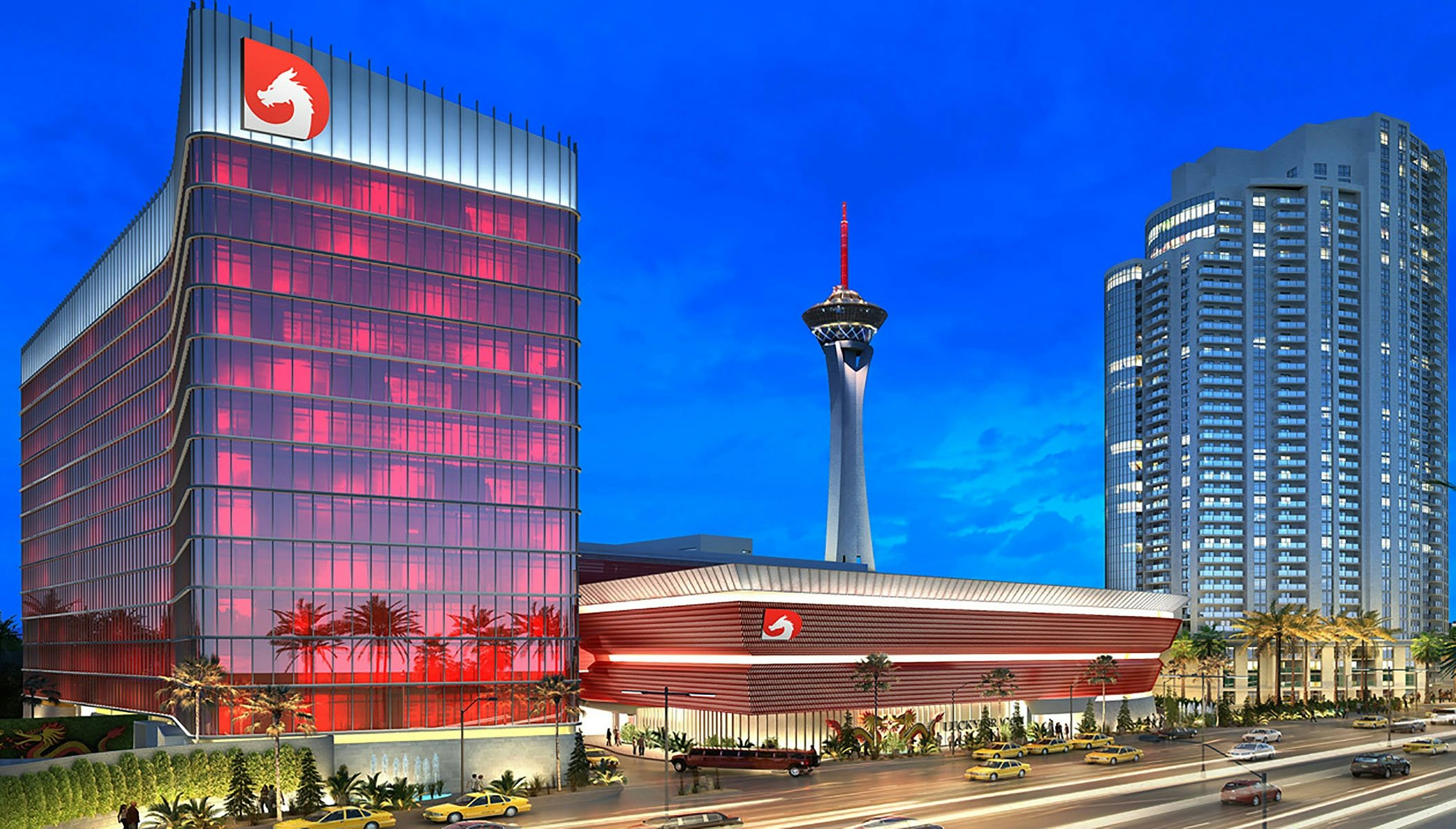Chinese-language signs, Mandarin-speaking staff, a multitude of Chinese restaurants, and a focus on games such as baccarat and pai gow: it sounds like any given Macau casino resort, but is actually Las Vegas’ new Chinese-first casino. The Lucky Dragon Hotel and Casino is scheduled to open by the end of 2016 and is the first in a line of casinos under construction in Las Vegas that specifically cater to Chinese tastes.
With China’s high rollers looking beyond China’s borders to avoid the watchful eyes of Xi Jinping’s anti-graft campaign, it should come as no surprise that casinos in destinations beyond Macau are taking measures to attract Chinese gamblers. However, actively pursuing China’s high rollers is old news in Las Vegas, with all major casino operators providing VIP services to attract and satisfy their highly profitable Chinese customers. So, what can Lucky Dragon, a relatively small casino resort just off the Las Vegas Strip, do to outshine its competitions’ luster and brand recognition with China’s high rollers?
“Let them fight over the one percent and let us fight over the remaining 99 percent,” David Jacoby, COO of the resort, told the Los Angeles Times.
Indeed, Lucky Dragon isn’t eyeing China’s high rollers, but is doing exactly what Macau casino operators have been trying to accomplish—targeting Chinese mass-market gambling. The strategy made sense for Macau as it was struggling in the shockwaves sent by Xi Jinping’s aggressive efforts to combat corruption—and indications are that its move toward the mass market has turned out both successful from a tourism point of view, as well as highly profitable for its casino operators. To hedge its bets even further, Macau is also focusing on families and non-gamblers as part of its new tourism strategy.
However, the anti-graft campaign is only part of the explanation for Macau’s recent turnaround. Importantly, the number of consumers that count as part of China’s middle class and upper-middle class is growing by the millions—far outpacing the growth of China’s ultra-rich demographic. Chinese outbound tourism’s next frontier isn’t China’s ultra-rich, but the growing—and still highly profitable—middle and upper-middle classes. As the example of Macau has proven, going for the mass market can be more profitable than going for the high rollers since it avoids the numerous intermediaries associated with VIP gaming. As an engine for future growth, the mass market holds much more promise than the saturated high end.
Chinese tourism to the United States has grown by over 600 percent since 2007. (Data from U.S. Department of Commerce International Trade Administration)
The market segments that Lucky Dragon is targeting are the Chinese middle class and Chinese-Americans, as well as the greater Asian-American community. Ironically, the Lucky Dragon project has also helped grow one of its targeted market segments since the project is largely funded by Chinese investments through the federal EB-5 visa program, which grants permanent residence in exchange for job-generating investment in the United States.
The fact that Chinese customers are the main target becomes obvious upon a first glance at the building with its luck-bringing red façade and its dragon logo. The interior is designed entirely with feng shui principles in mind, and the hotel doesn’t have a fourth floor—since the number four symbolizes bad luck—and it even went as far as avoiding having any phone numbers with the number four in them. While the strict dedication to Chinese traditions as far as design and numbers go certainly emphasize the project’s commitment to the Chinese market, other factors could be even more important for successfully attracting a Chinese clientele. For instance, Chinese is the first language in the entire resort—English second—and other Chinese and Asian languages are also being accommodated. Lucky Dragon also prides itself with having numerous Chinese restaurants that it hopes will attract Chinese visitors staying at other hotels along the Strip. Among the games it offers, baccarat and pai gow take more floor space than in other resorts as they are two of the preferred games among Chinese gamblers. The wholehearted dedication to Chinese tastes has certainly come at a cost, but it also allowed the developers to spend less on features of smaller importance to Chinese tourists, such as large swimming pools and nightclubs.
The Lucky Dragon is an all-in bet on China’s growing middle class and its appetite for international travel and gambling—and the data is pointing in its favor—3 million Chinese tourists are expected to visit the United States in 2016, and Las Vegas has seen Chinese visitors double in the last five years. The bigger question is perhaps if its dedication to the market will be enough to compete with the much larger US$4 billion Resorts World resort also planned to cater to Chinese demands when it opens in 2019. Crown Resort, another big player in Chinese gambling, also intends to set up shop on the Strip within the coming few years. While tougher competition in the Chinese marketplace is probably bad news for individual resorts such as the Lucky Dragon, a diverse selection of casino resorts that cater to Chinese customers is great news for Chinese gamblers—and will likely boost the allure of Las Vegas as a destination for prospective Chinese visitors.
The grand opening of the Lucky Dragon is also coinciding with the launch of the first direct-flight between Las Vegas and China, a new route operated by Hainan Airlines that promises to bring more Chinese gamblers than ever to the city. Indeed, Chinese gamblers will be able to enjoy a trip to Las Vegas without setting foot in a “non-Chinese” establishment or aircraft.
The main takeaway, however, is that the Chinese mass market is where growth lies for the gaming industry, and casino operators beyond Macau are beginning to make note of it.
